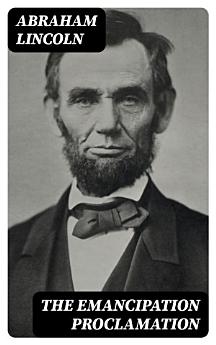The Emancipation Proclamation
Abraham Lincoln
Sep 2022 · DigiCat
Ebook
101
Pages
family_home
Eligible
info
reportRatings and reviews aren’t verified Learn More
About this ebook
The Emancipation Proclamation, penned by Abraham Lincoln in 1863, stands as one of the most pivotal documents in American history, marking a decisive turning point in the Civil War. Through a concise yet powerful executive order, Lincoln declared the freedom of all enslaved people in Confederate-held territories, a bold move that not only aimed to weaken the Confederacy but also reframed the war's purpose to include the moral imperative of abolition. The text is characterized by its rhetorical precision and legal clarity, embodying a blend of moral urgency and pragmatic political strategy reflective of its turbulent context. Lincoln's use of language resonates with the ideals of liberty and justice, emphasizing the profound human cost of enslavement while invoking the nation's founding principles. Abraham Lincoln, the 16th President of the United States, emerged from humble beginnings to become a symbol of unity and emancipation. His early exposure to the injustices of slavery and his evolving moral compass were instrumental in shaping his views on freedom and equality. Lincoln's profound understanding of the constitutional and social dimensions of his leadership inspired him to issue the Proclamation, aiming to redefine the American ethos amidst one of its darkest periods. This essential document is a must-read for anyone seeking to grasp the complexities of American history and the moral imperatives that shaped it. The Emancipation Proclamation invites readers to reflect on the integral relationship between governance and human rights, highlighting Lincoln's role as a transformative leader. For scholars, students, and history enthusiasts alike, this work not only sheds light on Lincoln's enduring legacy but also challenges contemporary readers to consider the ongoing struggle for justice.
About the author
Abraham Lincoln, the 16th President of the United States, is not conventionally known as an author in the literary sense, but rather as a seminal figure in American history whose written works, primarily speeches, and official documents, hold great historical significance. Born on February 12, 1809, in a log cabin in Kentucky, Lincoln rose from humble beginnings to the pinnacle of political power at the helm of a nation embroiled in civil war. His most notable document, 'The Emancipation Proclamation', issued on January 1, 1863, represents a turning point in American history, as it declared the freedom of slaves in the ten Confederate states then in rebellion. This document, characterized by its legalistic and political language, is not a book in the traditional sense but a formal government order. Nonetheless, it endures as a written testament to Lincoln's commitment to abolition and stands as a symbol of liberty and equality. Lincoln's literary style is marked by its clarity, moral conviction, and the poetic cadence of his speeches, most famously exemplified in the Gettysburg Address. While his written legacy doesn't include traditional books, Lincoln's collective works have been compiled and studied extensively for their rhetorical genius and historical import.
Rate this ebook
Tell us what you think.
Reading information
Smartphones and tablets
Install the Google Play Books app for Android and iPad/iPhone. It syncs automatically with your account and allows you to read online or offline wherever you are.
Laptops and computers
You can listen to audiobooks purchased on Google Play using your computer's web browser.
eReaders and other devices
To read on e-ink devices like Kobo eReaders, you'll need to download a file and transfer it to your device. Follow the detailed Help Center instructions to transfer the files to supported eReaders.








